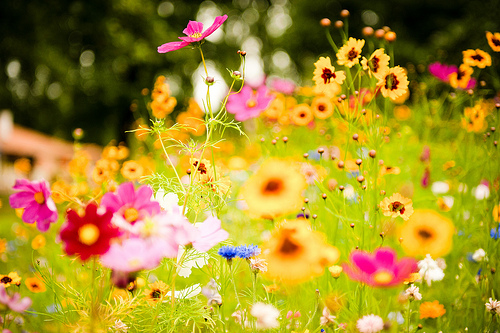Why Your Allergies Are Bugging You
If you’re thinking, “This is the worst allergy season ever,” you are correct!
“Pollen levels are increasing, pollen seasons are getting longer, and more people are developing allergies,” says Estelle Levetin, Ph.D., chairwoman of the aerobiology committee for the American Academy of Allergy, Asthma & Immunology.
In fact, it is estimated that this year’s fall allergies will most likely last up to 27 days longer than average in the northernmost parts of the country. So why is this happening?
1. The seasons are longer
Spring allergies now start sooner and fall allergies end later, thanks to global warming, says Jeffrey G. Demain, M.D., director of the Allergy, Asthma & Immunology Center of Alaska. The carbon-based fuels we use continue to generate greenhouse gases that trap heat from the sun in our atmosphere (causing higher temperatures and increased pollen spread).
2. There’s more pollen than ever
Increasing amounts of carbon dioxide in the atmosphere kick-start pollen production and boosts the amount each plant produces as well. Pollen is even more potent than ever, containing more allergen.
3. More people are developing allergies
The number of Americans with allergies has grown to be 2-5 times higher than thirty years ago. Because we are too clean (exposed to less dirt and bacteria), our bodies overreact to harmless substances like pollen. At the same time, pollution is worse than ever, which can also trigger allergies.
However, the good news is that treatment options for allergies are a lot more efficient than they used to be. Strong mixes of non-sedating antihistamines, eyedrops and steroid sprays help target today’s increased symptoms. Yet, getting re-acquainted with nature– by skipping hand sanitizer and eating whole, fresh foods– may be the true defense against nature itself.


















